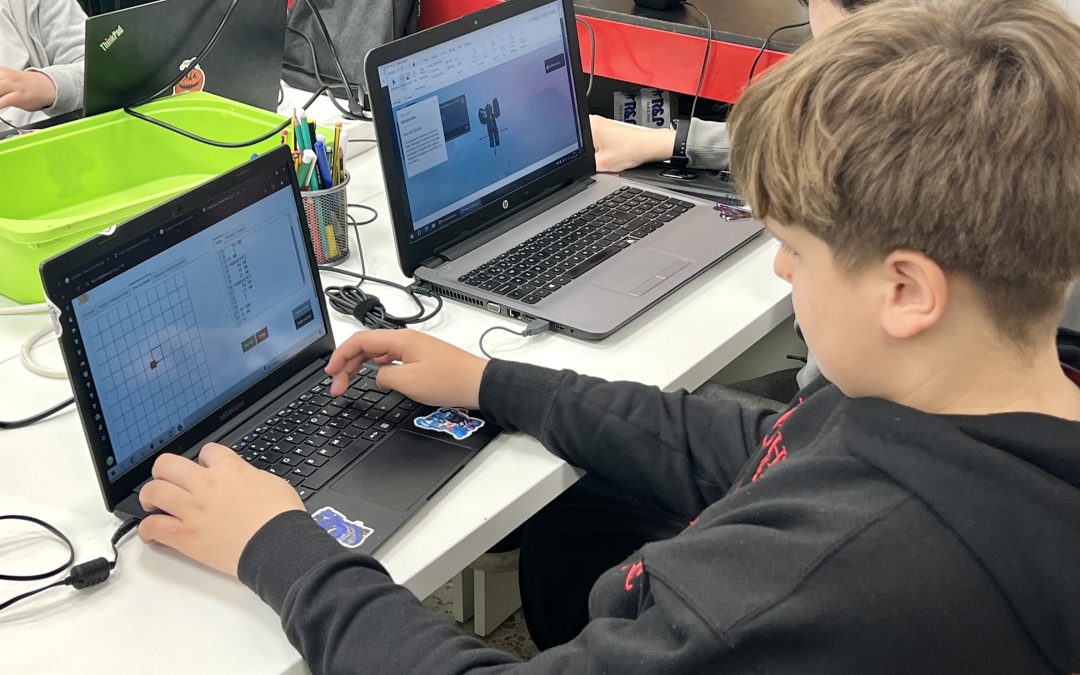In recent years, artificial intelligence has become part of our everyday lives. Today, we can ask a virtual assistant to translate a text, suggest a recipe, edit an image, or even generate snippets of code to solve programming problems. That’s why many people wonder: if AI can code for me, why should I bother learning to program?
The answer is simple: programming is the language that allows us to understand, control, and innovate in a future where AI will be our ally, not our replacement. Programming has never just been about “writing lines of code.” It’s about understanding how systems work, designing creative solutions, and applying logical thinking to solve problems. Even if AI can automate parts of this process, the real value lies in the uniquely human ability to guide, oversee, and leverage it as a partner
Programming as a universal language
Centuries ago, learning to read and write opened the door to knowledge and progress. Today, programming plays a similar role: it’s the new universal language that allows us to communicate with machines and understand the digital world we live in.
Everything around us runs on software—from the phone we use every day, to the car we drive, ATMs, video games, and even the systems that manage air traffic. Learning to code means understanding the logic behind these technologies and, even more importantly, being able to take part in building them.
In this context, those who don’t understand the digital language will depend entirely on what others create. On the other hand, those who can code will be able to adapt, innovate, and have a voice in an increasingly tech-driven world. Learning to program is the key to becoming a creator rather than just a consumer of the digital age.
AI as an ally, not a replacement
Many people fear that AI is here to replace human jobs. But history tells a different story: every time a powerful new tool emerges, it doesn’t eliminate human potential—it expands it.
Think of the calculator. Its invention didn’t make learning math unnecessary; instead, it allowed mathematicians and scientists to focus on more complex problems. The same is true for artificial intelligence: it frees us from repetitive or technical tasks, but creativity, critical thinking, and decision-making remain human strengths.
In this sense, coding in the age of AI isn’t about competing with machines, but about knowing how to guide them. Those who understand programming can ask AI for exactly what they need, spot when it makes mistakes, and combine its output with their own solutions to achieve better results.
Computational thinking: a lifelong skill
When we talk about learning to code, it’s not just about mastering a language like Python, Java, or C++. What really matters is the skill that comes with programming: computational thinking.
Computational thinking means learning to break a complex problem into smaller parts, recognize patterns, design logical steps, and arrive at an organized solution. This ability goes far beyond computer science—it helps solve math problems, organize projects, plan trips, or even manage time more effectively in daily life.
What’s more, computational thinking fosters creativity and resilience. Programming teaches us that mistakes aren’t failures but necessary steps toward the best solution. This mindset is valuable not only academically and professionally but also in personal life.
Preparing for the jobs of the future
The job market is changing fast, and many of the professions that will exist ten years from now haven’t even been invented yet. What we do know is that all of them will be shaped by technology and artificial intelligence.
A doctor will need to understand the digital tools that help with diagnosis. An engineer will need to program autonomous systems. An artist might combine creativity with algorithms to explore new forms of expression. Even in fields like economics, psychology, or education, those with programming knowledge will be better prepared to understand and harness technology.
That’s why learning to code isn’t just for people who want a career in computer science. It’s an investment in the future for anyone—a cross-disciplinary skill that opens doors in many sectors and makes it easier to adapt to a constantly evolving job market.
It’s true that artificial intelligence is transforming our world, but we need to remember it’s still just a tool. And like any tool, it’s only as powerful as the person using it. Those who know how to program have the advantage of understanding what’s happening behind the screen, thinking in a structured way, and guiding AI toward the results they actually need.
In short, learning to code in the age of AI isn’t optional. It’s the key to moving from being a passive observer of technological change to becoming an active player in the digital future. If you want your kids to be part of it, sign up for a free 15-day trial class and let them take their first steps into the world of programming.

